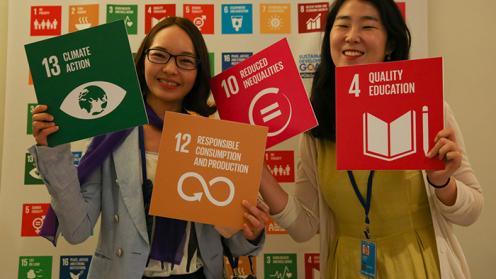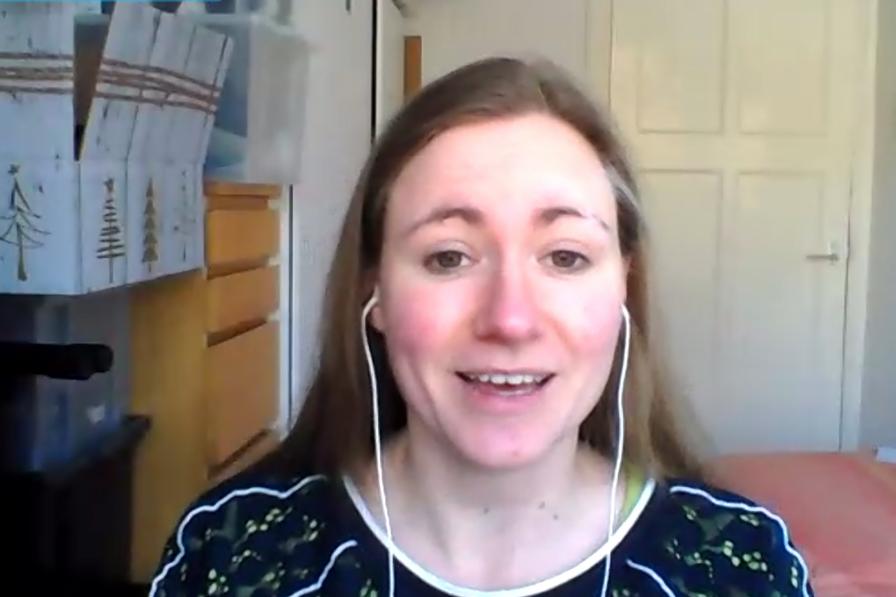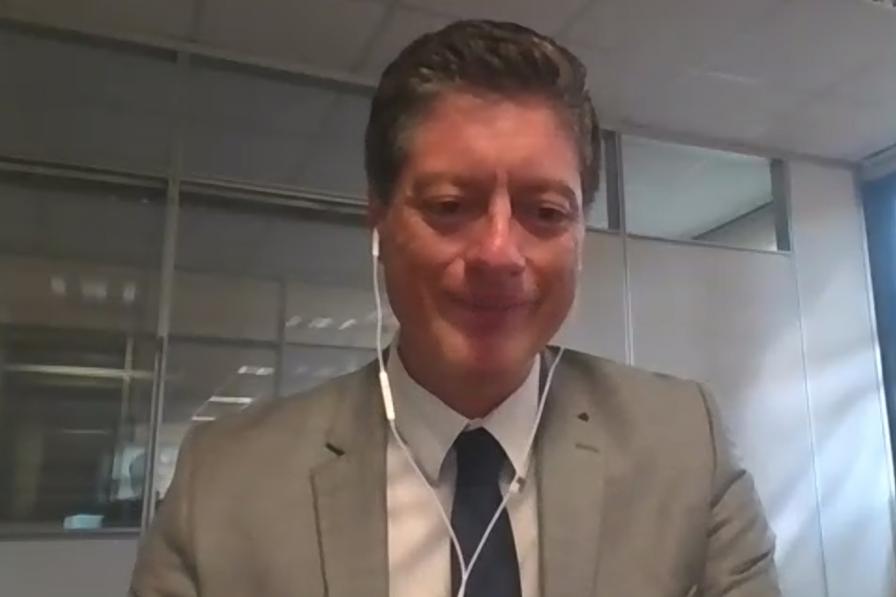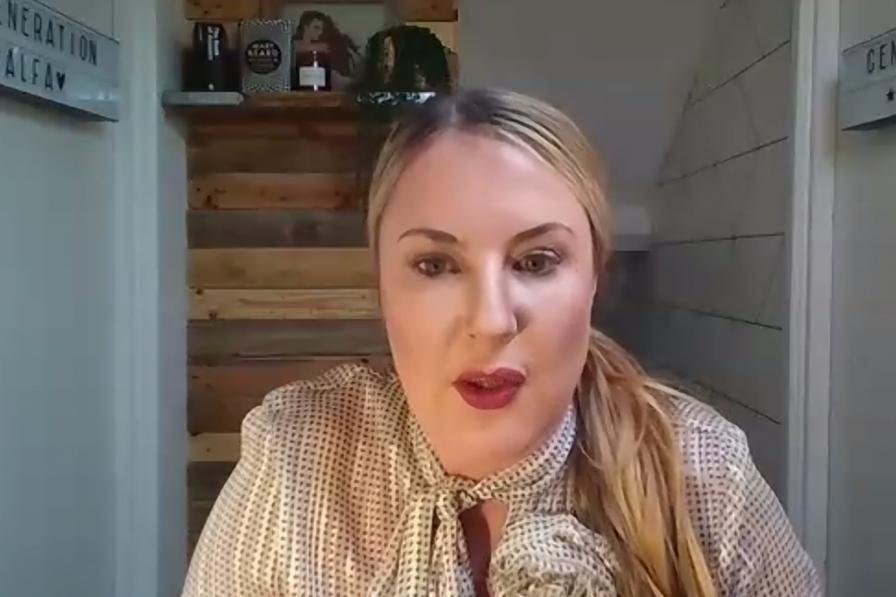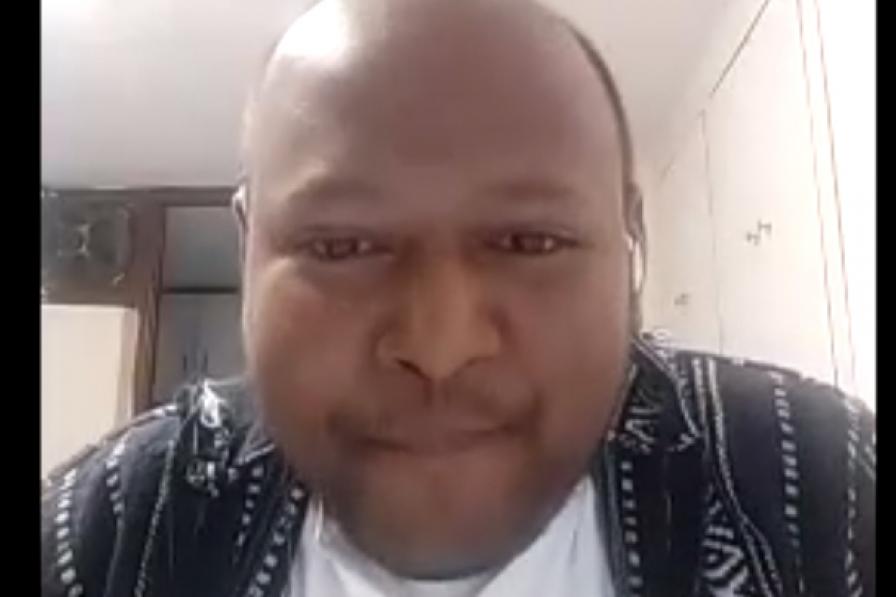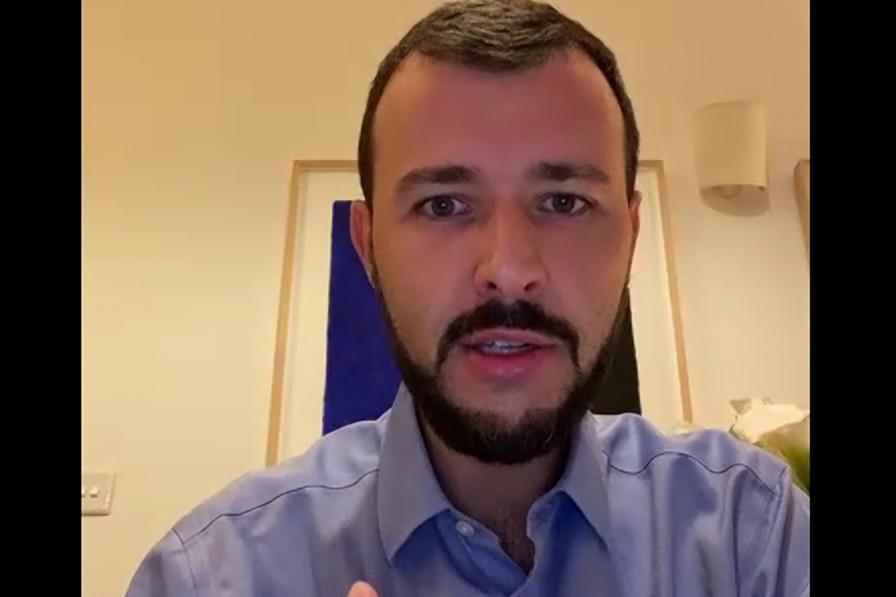The second Youth Environment Assembly started on Friday, 12 February. The Assembly provides space for youth to mobilize and share their experiences, and also to organize in advance of the UN Environment Assembly (UNEA) meeting next week. The opening ceremony set the tone of the meeting: “Nothing about us, without us,” as stated by Yugratna Srivastava and Teresa Oberhauser, Global Coordinators, Major Group of Children & Youth to UNEP.
Many speakers in the opening ceremony observed the vital role of youth as changemakers pushing governments and society more widely to do better to address the climate, biodiversity, and pollution crises.
Beyond intergenerational inclusion, Archana Soreng, on the UN Secretary-General’s Advisory Group on Climate Change, urged the inclusion of indigenous voices in the climate movement, saying that the youth movement is a model of embracing intersectionality. Lefteris Arapakis, Young Champion of the Earth, told participants that starting small and local can lead to significant change.
Youth delegates offered their views on the upcoming 50th Anniversary of the UN Conference on the Human Environment held in Stockholm, Sweden in 1972 (Stockholm+50). Ambassador Joanna Lissinger Peitz, Stockholm+50 Secretariat, relayed the reasons behind the meeting – to connect the environment and development and to consider environmental issues in a holistic, cross-cutting way.
Youth panelists were specific. David Mwabila called for rooting governance in particular realities and contexts, bridging the digital gap, and building accountability at the individual and institutional levels. Heli Shah underlined the need to change the narrative of development through valuing natural resources.
Participants spoke with Deputy Permanent Representatives to UNEP from Argentina, Brazil, Italy, and France in the “Tell Governments What You Want!” session. The Deputy Permanent Representatives outlined the issues that will be addressed at UNEA’s online (2021) and resumed (2022) sessions. They all stressed the need for active participation in the new Decade of Action to achieve the Sustainable Development Goals and a green and just recovery from the pandemic. Youth delegates called for mainstreaming youth involvement and greater transparency in the messaging and activities of UNEA. Panelists and participants engaged in a wide-ranging discussion on the relationship between poverty and sustainable development, including the short-term time horizons of the poor and the need for strong ecosystems that can support livelihoods.
In a thematic consultation on youth and faith-based engagement, participants discussed the upcoming Global Youth Council on faith-based engagement. Panelists reflected on the role of spirituality in addressing the root causes of environmental destruction such as greed and apathy. Presenting the Faith for Earth Initiative UNEP, Iyad Abumoghl highlighted the political and financial power of faith-based organizations.
Closing the first day, Oberhauser noted the broad commitment to including youth and acting on climate change, biodiversity loss, and plastic pollution, but she noted that current commitments are not enough. Delegates then met in a breakout group to prepare for the UNEA negotiations.
